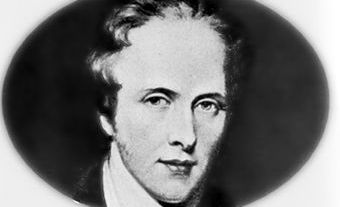Bachman, Randy

Randy (b Randolph Charles Bachmann) Bachman. Songwriter, guitarist, producer, b Winnipeg 27 Sep 1943; honorary D MUS (Brandon), 2001. The eldest child of four, Bachman was the driving force behind the formation of two leading Canadian rock bands, and an influential rock songwriter. After winning a local Winnipeg radio talent show at age three, he studied violin from age five with George Rutherford and later with Iris Spencer, performing on that instrument at Winnipeg movie theatres. He discovered the then-new music form of rock and roll while in his teens, and first played guitar at age 13, learning from his relatives. Later, he played in a rural polka band for weddings. While still in his teens, he met jazz guitarist Lenny Breau, with whom he developed his technique and playing style.
The Guess Who
Bachman was guitarist with Chad Allan and the Silvertones (later the Reflections) in the early 1960s and, from 1965, with his own band the Guess Who. He mentored the young Burton Cummings; the pair became a formidable songwriting team, with such international gold and platinum hits as "These Eyes." As he did with his later bands, Bachman handled the Guess Who's business affairs.
In 1966 Bachman married Lorayne Stevenson, converting to his wife's Mormon faith. Finding the lifestyle of a touring rock band not in keeping with either his preference for a family lifestyle or his religious beliefs, Bachman left the Guess Who in 1970 to form, with Chad Allan and Rob Bachman, the band Brave Belt.
Brave Belt/Bachman-Turner Overdrive (BTO)/Ironhorse
The new band Brave Belt, under Bachman's guidance, followed rules of conduct set to avoid the problems of drugs and licentious behaviour typical of a rock band's lifestyle. As Bachman stated in a 2004 CBC Life and Times interview, "For me, it was never sex, drugs and rock and roll; it was just rock and roll." They began recording in 1970, and by 1972 were known as Bachman-Turner Overdrive. This band enjoyed great success in Canada and the USA, performing as headliners by late 1974. Bachman's songwriting and guitar-playing skills again proved to be crucial elements in the band's success.
Splitting from BTO in 1977, Bachman then formed the less-known band Ironhorse, which released a self-titled album (Scotti Bros SB-7103) in 1979, followed by Everything Is Grey (Scotti Bros XSB-7108) in 1980.
BTO was inactive by 1981 when Bachman and others formed yet another band (Union), but enjoyed subsequent revivals, in which Bachman participated.
Solo Career
In 1970, Bachman recorded the solo LP Axe (RCA LSP-4348), and later Survivor (Poly PD-1-6141). He has appeared solo on the American Bandstand television show.
The 1990s saw Bachman release the albums Any Road (Ranbach Music RBK 1111, 1993), Bob's Garage/Live (1993), The Randy Bachman Song Book (a compilation album, 1996), and Merge (True North TNS D0117, 1996). He often contributed guitar tracks for albums by other musicians, including fellow Winnipegger Neil Young. Young has participated in several of Bachman's own recordings.
Despite well-publicized differences, Bachman and Cummings reunited on several occasions for concerts with or without the other Guess Who members, and the complete Guess Who undertook reunion tours in 2000 and thereafter. In 2002, Bachman released the solo recording Every Song Tells a Story (True North TND 291) and undertook a solo national tour.
Bachman's Hit Songs
Bachman enjoyed international success both as a solo songwriter and in his lasting songwriting partnership with Burton Cummings. With the latter, Bachman received SOCAN Classics awards for "These Eyes" and "No Time." His "Let It Ride," "Hey You," and "No Sugar Tonight" each attained 100,000 airplays on domestic radio. "You Ain't Seen Nothin' Yet" was used as a theme song for US Democratic presidential candidate Al Gore in 2000, and was also a hit as a dance tune recorded by the UK band Bus Stop. Several Bachman hits have been used in television shows and motion pictures; eg, "American Woman" was heard in Austin Powers: The Spy Who Shagged Me; and "Takin' Care of Business," somewhat of a personal theme song for its writer, was used in the motion picture A Knight's Tale. Hal Leonard has published a Bachman song collection as well as arrangements of his songs for choir, marching band, and jazz ensemble. Bachman's songs have been recorded by artists as diverse as James Last and Alabama.
Bachman turned increasingly to songwriting for others in the late 1990s, crafting songs for "boy bands," dance and country music, and other unaccustomed pop genres.
As Producer
In addition to producing albums by Brave Belt and BTO, Bachman produced albums by Trooper in the 1970s, and was awarded the 1975 producer's Juno. Subsequently, Bachman produced recordings for Iron Horse, Union, and Colin Arthur.
Bachman founded the record label Guitararchives, which is devoted to making available the music of his mentor, Lenny Breau. His Ranbach Music label publishes archival recordings of the Guess Who.
Honours and Assessment
Bachman has been noted for his strong work ethic and considerable business acumen, notwithstanding past disputes with former colleagues over creative issues. He played a leading role in the Canadian recording industry at a period of its significant growth. With the Guess Who, Bachman was inducted into the Juno Hall of Fame in 1987 and the Canadian Music Hall of Fame in 2002, and was recognized with a 2002 Governor General's Performing Arts Award. Collectively, the band's members have been credited for laying the groundwork for the successes of later Canadian international pop and rock stars such as Bryan Adams and Alanis Morissette. Neil Young is among those who count Bachman as an influence.
Bachman's former high school named its music complex after him. He deposited his archives with the Library and Archives of Canada. His autobiography, Takin' Care of Business, was published by McArthur and Company in 2000. He was inducted into the Canadian Songwriters Hall of Fame, the Order of Manitoba in 2005 and the Order of Canada in 2008.
Writings
"Proud to be a Canadian," Network, Jun 1993

 Share on Facebook
Share on Facebook Share on X
Share on X Share by Email
Share by Email Share on Google Classroom
Share on Google Classroom


